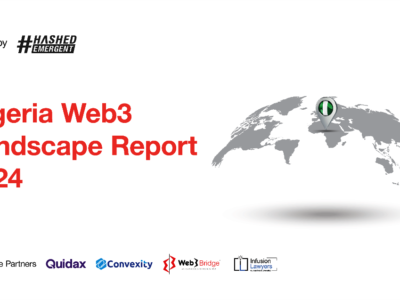By Léa Zouein, Analyst at Dataxis
On 10 January 2024, Multichoice announced an agreement with rights holder New World TV, enabling SuperSport to broadcast all AFCON matches. Despite the initial failure in securing the rights, a distribution agreement was finally reached with the Togolese broadcaster. This achievement for the South African media giant comes against a difficult backdrop, with its satellite service DStv recording a decline in subscribers and profits at Q3 2023 in South Africa, marking the first downturn in the company’s most dynamic market. Notably, subscriber numbers fell by 7% between Q1 and Q3 2023. This reversal prompts questions about the sustained success of Multichoice since its inception.
RELATED: Multichoice, Comcast’s NBCUniversal, Sky ink partnership to create leading streaming service in Africa
Until 2018, Pay TV revenues in South Africa surpassed the combined revenues of all other countries in Sub-Saharan Africa. Even though the balance of power has shifted since then, South Africa’s Pay TV revenues still account for approximately 70% of the combined revenues of other African countries. And yet, since its launch, Multichoice in South Africa has consistently held over 85% of market share in terms of both subscribers and revenue. How to explain this shift in trend in the Group’s most dynamic market when at the same time, the company continues its expansion by revamping its streaming platform Showmax, with a much-anticipated new version scheduled for release in February 2024?
DStv packages: a wide range of satellite channels at a fair price compared to competition
DStv positions itself in the market by providing an extensive array of channels at competitive pricing. For instance, in South Africa as of November 2023, DStv presented packages ranging from 31 channels to 150 with prices between $1.56 and $47.35. In contrast, ZAP’s Premium package, priced at $51.17, offers 105 channels, representing a difference of 45. And yet, despite the variance in channel count, both packages maintain similar proportions of content genres, including sports channels (12-15%), movies and fiction channels (19-20%), and international channels (10-12%) among others.
Hence, Multichoice’s packages hold heightened appeal for users due to their offering of the most competitive pricing for a relatively equivalent channel lineup. DStv South Africa not only features some of the most widely distributed channels in the region, including Nat Geo Wild, National Geographic or BBC News, but also provides exclusive channels not available through other Pay-TV services. These encompass for instance its 17 SuperSport channels specializing in sports such as football, cricket and tennis. Still, the South African entity encounters challenges in the country that was historically considered to be the most dynamic: South Africa.
Multichoice’s growth disparities between South Africa and the Rest of Africa
Indeed, for the first time, Multichoice has reported a 5% decline in its active subscriber base (90 days) in South Africa between Q3 2022 and Q3 2023. Premium and mid-market packages had already shown fluctuations in subscriber numbers in previous quarters. For instance, between Q1 2022 and Q1 2023, the Premium package experienced a 6% decrease in subscribers, and 5% between Q3 2022 and Q3 2023. What is noteworthy is the 1% decline in the number of subscribers to mass market packages between Q3 2022 and Q3 2023. Price increases (+5% for premium and mid packages and +6% for mass market packages) were not enough to counterbalance this decline, resulting in a 4% reduction in the Group’s revenues between Q3 2022 and Q3 2023 in South Africa. Multichoice attributes these falls to fluctuations in local currencies, to economic pressure on local populations and to load shedding.
Meanwhile, in the Rest of Africa (RoA), the group reported a 1% increase in active subscribers during the same period despite parallel declines observed in Nigeria (-1% YoY subs growth between Q3 22 and Q3 23) and Kenya (-9% YoY subs growth). This growth was coupled with a 14% of organic growth in subscription revenues, underpinned by approximately 14% price increases in select markets.
In reality, OTT is gaining prominence in the more dynamic markets, enabling consumers to liberate themselves from the time constraints associated with linear TV and to access content on their preferred devices. With smartphone population penetration exceeding 50% in certain countries, such as South Africa (65,73%) or Kenya (51%), and the expansion of 4G and 5G networks, OTT is bound to grow. The growing number of offerings exacerbates the challenge for platforms to provide an increasingly compelling service to retain subscribers; hence the forthcoming relaunch of a new, more complete version of Showmax.
Netflix and Showmax: the frantic race for the top of the rankings
Despite the escalating competition from international and local actors like Disney+, Prime Video or Wi-Flix, Netflix and Showmax together account for around 50% of subscriber market shares in the region. The partnership unveiled in March 2023 between Multichoice and NBCUniversal aims to reshape the South Africa streaming platform, positioning it as a frontrunner in a market currently dominated by the American giant. This strategic alliance will empower the local player to enhance its content portfolio by incorporating internationally acclaimed titles under licenses such as NBCUniversal, Warner Bros, Sony Pictures and HBO. Showmax has already disclosed a selection of titles that will be accessible at the platform’s launch in February; including notable productions like Mission Impossible: Dead Reckoning, Spider-Man: Across the Spider-Verse, House of the Dragon, and The Last of Us.
The infusion of numerous international titles, combined with its local content, will position Showmax to rival or potentially surpass Netflix’s extensive catalog. In South Africa, as of October 2023, Netflix boasted 8371 titles, encompassing 7513 national exclusivities and 4783 international exclusivities, while Showmax offered a more modest selection of 3020 titles, featuring 2178 South African exclusivities and 576 world exclusivities.
Not only does Netflix have a well-stocked catalog of international content, but the American platform is also investing more and more in the production of local content. Since its market entry in 2016, the platform has allocated $175 million towards content production in South Africa, Nigeria, and Kenya, with South Africa receiving over $125 million of this investment. The platform’s endeavors have yielded successful productions such as “Blood and Water,” marking the first African series to attain the top position in US rankings. This series has not only achieved significant success in Africa, including South Africa and Kenya, but has also garnered acclaim on a global scale, reaching top positions in countries such as France, Brazil, Mauritius, Belgium, and the UK, among others. Therefore, Showmax’s enhanced platform, featuring a significantly enriched catalog, positions the service to compete more effectively than ever with its American counterpart.
Becoming a super-aggregator to dominate the market?
What if Multichoice’s strategy involved aggregating an extensive range of content and services? The new version of Showmax will unequivocally provide consumers with access to an expanded catalog of local, international and exclusive content. Yet, the South African giant’s efforts go beyond content enhancement, introducing new ways for users to access content. It markets its own TV-streaming box, DStv Streama, which provides access not only to DStv and Showmax content but also to a variety of pre-installed streaming applications such as Prime Video, Netflix and Youtube. Essentially, with a stable Internet connection, this box functions as a Smart TV, anticipating the launch of DStv Glass. And since the end of 2022, Multichoice has extended its offerings to include fiber subscriptions through DStv Internet service. Users can therefore combine TV, streaming and internet subscriptions on the same bill.
Following its peak in March 2023, coinciding with the announcement of partnerships with NBCUniversal, Multichoice’s share price experienced a gradual decline until December 2023. Although a slow upturn was observed since then, it remains below pre-March levels. The eagerly-anticipated relaunch of Showmax in February 2024, anticipated by the company to be a success, is poised to instill renewed confidence among investors. A critical consideration is the strategic positioning that Canal+, holding a 31,7% stake in Multichoice, will adopt. If the French company chooses to amplify its investment in the South African giant, it would have no choice but to follow the local regulations and attempt a takeover, potentially leading to the establishment of a quasi-monopoly in the region.
This research highlight is based on our data coverage of TV Networks and Content in Africa. Please contact us to get a demo and see the depth of our service. This topic will also be adressed during our conference Nextv Series Africa 2024, which will bring together industry professionals to explore the latest business trends, opportunities, and challenges in this ecosystem.
Credit: Dataxis

































